Standing by the Wall (A Slough House Interlude)
Mick Herron
Baskerville, 3 November 2022
Available as: PB, 56pp, audio, e
Source: Bought
ISBN(PB): 9781399807081
I like talking about books, reading books, buying books, dusting books... er, just being with books.
21 December 2022
#Review - Standing by the Wall by Mick Herron
19 December 2022
#Review - A Restless Truth by Freya Marske
Freya Marske
Pan Macmillan, 10 November 2022
Available as: HB, 400pp, audio, e
Source: Advance e-copy
ISBN(HB): 9781529080933
16 December 2022
#Review - Undercover by Tamsin Muir
14 December 2022
#Review - Skeleton Song by Seanan McGuire
Seanan McGuire
Tor.com, 2 November 2022
Available as: e
Source: Purchased
ASIN: B0BK6J3FFM
12 December 2022
#Review - City of Last Chances by Adrian Tchaikovsky
Adrian Tchaikovsky
Head of Zeus, 8 December 2022
Available as: HB, 512pp, audio, e
Source: Advance e-copy
ISBN(HB): 9781801108423
7 December 2022
#Blogtour #Review - Dashboard Elvis is Dead by David F Ross
David F Ross
Orenda Books, 8 December 2022
Available as: PB, 300pp, e, audio
Source: Advance copy
ISBN(PB): 9781914585401
5 December 2022
#Review - Cold Water by Dave Hutchinson
Available as: PB 417pp, audio, e
Source: Purchased
1 December 2022
#Review - Hunting Time by Jeffery Deaver
Jeffery Deaver
HarperCollines, 24 November 2022
Available as: HB, 432pp, e, audio
Source: Advance e-copy
ISBN(HB): 9780008503819
29 November 2022
#Review - Loki by Melvin Burgess
Melvin Burgess
Coronet, 17 November 2022
Available as: HB, 262pp, e, audio
Source: Advance copy
ISBN: 9781399701525
I'm grateful to the publisher for a free advance copy of Loki to consider for review.
I am fascinated by mythology. The stories of ancient gods and heroes seem to have a staying power that has outlasted belief in them. Endlessly invented and reinvented, they clearly remain relevant today, immensely popular and indeed seem to be having a bit of a moment now, especially through feminist versions and as here, those which re-evaluate the villains of the pantheons.
Villains are SO much more interesting than heroes, and Loki is a fascinating example, who's been under close scrutiny of late. Burgess's retelling takes that further, not just giving Loki's estimation of himself but also presenting the stories of Asgard, of Thor, Odin and Freya, from the trickster god's perspective. It's an interesting, not to say at times eye-popping experience. Like (I suspect) many people in the UK, my first encounters with the classic Greek and Norse myths were as a child, via retellings by Roger Lancelyn Green, versions designed to be OK for children and therefore missing out some of the more earthy aspects. In contrast Loki leaves little out, making full use of the mischievous god's full range. He (at times she) is one of the more entertaining and interesting mythical characters, allowing Burgess to fuse the separate Norse myths and legends and create a thematically satisfying narrative. That makes Loki a fluid and engaging read, rather than just a collection of episodes.
The setup here is that we - as modern humans - are being told this story by Loki from his deep prison. Like a celebrity giving an interview following a tabloid storm, he wants to put his side of things, to set the record straight. He's been traduced by the Asgard spin machine, his good deeds edited out, his crimes twisted and magnified. Loki acknowledges himself as a liar (indeed, the inventor of the lie) but promises that, this time, we're getting the truth. And a great deal of the story is uncomplimentary enough to him that we might accept this, although it's also, perhaps, a story spun and pitched to meet our modern sensibilities, showing Loki as the one who preached love, who always counselled peace, who urged (and performed) diversity and tolerance. We may therefore think we are being spun a tale, that he wants something from us. And indeed, as it eventually turns out, he does, though we're assured that is something that will benefit us, in the end.
I'm not sure whether this is meant by Burgess to be a depiction of Loki as a being with a supreme ability to distort the truth, or as a genuinely wronged figure in the narrative that's presented. You will have to read the book and judge.
That reading was for me a fun and enthralling experience, the Norse myths being dismantled and reassembled with a very modern sensibility. Indeed some of the overtly "religiously" aspects are presented in what was for me, as a Christian, a very suggestive way - clearly, for all his confinement, Loki has a good knowledge of the modern work. Take for example Thor's passion, dying nailed to a tree before descending to the Underworld and arising again, bearing the scars of his experience. This was a very horrifying, but also moving, account, as much so for me as any Easter passion. Other elements touch on the modern understanding of gender fluidity, with one of the gods (I won't say who, because spoilers) challenging the rigid, patriarchal regime of Thor and Odin with their developing understanding of their own identity.
Throughout, Loki takes pains to draw himself as the good guy, standing against the authoritarianism of Asgard and for freedom of conscience. He has been misunderstood, he seems to be saying, and the bad things attributed to him are often things that would have happened anyway, or else he was simply carrying out orders for the rest of the gods, and obviously regrets what happened - but what's done is done.
That slipperiness makes Loki, for all the modern enjoyment of a morally grey character, hard, in the end, to actually like. We can empathise with him, yes, especially when some really awful things happen to him, but I'm not sure I'd go so far as to say he is morally conflicted - Loki is always guided at the time, when push comes to shove, by what's best for Loki, even if he expresses sadness after. Mistakes were made, he seems to be saying, but it wasn't, really, my choice.
Overall, this is an exciting and deeply readable retelling. Loki himself is a complex and shrewd narrator whose role is framed with just enough meta-ness to make what he tells us relevant today, rather than being lost in a vaguely medieval Never-Never land. (References to razor-wire defences in Asgard and the like crop up, not as anachronisms but deliberate placings to show us this a story of the now, not the long-ago). It's therefore thought-provoking, but the nature of the central character is such that it's hard to relax with him, so to speak. Perhaps that's the point?
For more information about Loki, see the publisher's website here. Or you could read Runalong Womble's excellent take here.
24 November 2022
#Review - The Hollows by Daniel Church
Daniel Church
Angry Robot, 8 November 2022
Available as: PB, 460pp, audio, e
Source: Advance copy
ISBN(PB): 9781915202383
22 November 2022
#Blogtour #Review - Suicide Thursday by Will Carver
Will Carver
Orenda Books, 24 November 2022
Available as: PB, 276pp, audio, e
Source: Advance copy
ISBN(PB): 9781914585388
15 November 2022
#Review - What Moves the Dead by T Kingfisher
T Kingfisher
Titan Books, 18 October 2022
Available as: PB, 192pp, audio, e
Source: Advance copy
ISBN (PB): 9781803360072
I'm grateful to the publisher for an advance copy of What Moves the Dead to consider for review.
What Moves the Dead takes us to Ruravia, a remote Central European country sometime in the 1890s. Alex Easton, a former soldier, has come to visit childhood friends Madeline and Roderick, with whom all is not well...
I completely loved this bizarre, fungus-steeped Gothic episode which echoes and completes Edgar Allan Poe's The Fall of the House of Usher, supplying an explanation and a great deal of background to that sinister story. Madeline and Roderick are the Ushers, and are central to this story, but while Kingfisher gives a plausible scenario explaining what is going on, this book is so much more than that.
Easton is, for example, a fascinating personality, Gallacian by nationality, a nation whose language has seven different sets of pronouns 'one of which is used only for God' and another which specifically applies to soldiers - creating a reality which the slightly buttoned up Dr Denton, an American also visiting the Ushers, has some trouble with. Easton is also a sufferer from tinnitus, and dwells in this story on the aftereffects of war on those soldiers who are lucky enough - or unlucky enough - to survive. Easton and Denton bond, somewhat, over the aftermath and pity of war: both have served. (Kingfisher surfaces something often, I think, hovering on the margins of Victorian fiction - think of Doctor Watson and his wounds from Afghanistan, for example).
With this small cast of characters (there are a couple more) Kingfisher has immense fun. The book is both deeply, scarily chilling and - often at the same time - very funny. It's also firmly rooted in a well-realised world, only partly based on evocations of the classics (as well as Poe, there are echoes of Conan Doyle and of course, Anthony Hope).
All the familiar tropes are here - the isolated house, the mysterious wasting disease, the sense that something is being hidden, sleepwalking, the rational yet baffled outsider - yet the story has a heart and should bond those trappings and, when is all is finally revealed, a rather plausible if chilling explanation. It's quite different from those other horror - Kingfisher evokes an eerie reality closely tuned to the rhythms and growth of the natural world and indeed from the start there's both a fascination with that (conveyed especially though the eccentric wandering English naturalist Eugenia) and a sense of threat.
All in all, an entertaining and thought-provoking story, one I galloped through in a single day (even though I had another book on hand that I ought to have been finishing).
For more information about What Moves the Dead, see the publisher's website here.
11 November 2022
#Blogtour - The Stars Undying by Emery Robin
Emery Robin
Orbit, 10 November 2022
Available as: PB, 516pp, e, audio
Source: Advance copy
ISBN(PB): 9780356519388
10 November 2022
#Review - The World We Make by NK Jemisin
NK Jemisin
Orbit, 3 November 2022
Available as: HB, 352pp, e, audio
Source: Advance copy
ISBN(PB): 9780356512693
8 November 2022
#Blogtour #Review - The Pain Tourist by Paul Cleave
ISBN(PB): 9781914585487
3 November 2022
#Blogtour #Review - Blood of a Novice by Davis Ashura
Davis Ashura
Available 8 November
Formats: e-book, audio
Sour ce: advance e-copy
ASIN(e): B0B86KPPM1
2 November 2022
#Review - Bournville by Jonathan Coe
Coe's latest novel takes us on a trip though the past 75 years of British (well, English) life, using as stepping stones seven significant episodes from with VE Day in 1945 to its 75th anniversary just as the Covid-19 storm was gathering. En route we see the Coronation, the 1966 World Cup, the Investiture of Charles as Prince of Wales, his and Princess Diana's wedding (and later, her funeral) and other moments of the (allegedly) whole-nation-together-watching on TV sort. (The Investiture? Really? I was only 2 at the time so don't remember it, but did people really tune in the same way as for the others?)
It is perhaps an irony that the book appears too late to add in the recent death and funeral of Queen Elizabeth II - surely the apotheosis of this kind of shared experience. I certainly read the part dealing with the funeral of Diana - with its evocation of the ever-thickening crowds and then the comment that 'the Queen had not even returned to London from Balmoral' in a different way to how I might a couple of months ago. A persistent problem, perhaps, with anything touching the British royal family is the abundance of potential meaning and there being just too many references - Coe intended I think to use Diana's marriage and funeral to make a point about the refusal of the Lambs to properly welcome Bridget, a woman marrying in who's not from a White British background ('families like this... they never really accept people from outside, do they?' ) but actually when that's more or less reflected in the ballads every single day it might seem just obvious).
Coe portrays both the immediate consumption, as it were, of these moments - families gathered around flickering monochrome TV or flatscreen panel or sat at bunting-decked tables in the street - and the weeks and months around them, following several generation of the Lamb family. It all starts with Sam and Doll Lamb and their daughter Mary in Bournville, a suburb of Birmingham dominated by the Cadbury's chocolate factory, in 1945. The book plugs into the wider Coeniverse, featuring characters from earlier novels, sometimes as walks-ons (I glimpsed a couple of Trotters!) and sometimes in more significant roles (David and Gill Foley and their father Thomas - as Coe points out in his Afterword, this book has a particularly close relationship to Expo 58, The Rain Before It Falls and Mr Wilder and Me).
For me, that embedding gives the book wider resonance, drawing on established characters and filling in gaps in the chronology, though it made me ache for a family tree. There would definitely be a market (well, of me) for a Coe Companion. It goes some way to address what is otherwise an inevitable result of the episodic nature of the book, that its alighting on particular moments from decade to decade risks a sort of "1970s House" ness - you know, the reality series where a family move through a year in each episode, their technology, food and possessions being rudely updated each time. Coe tells us for example that 'there is a new shop on the King's Road, apparently - she has read about it in the Sunday Times colour magazine - which is called Habitat...' and we know that now the 60s are Happening. Or a character will be proselytising the virtues of the Sinclair ZX81, demonstrating that the age of the home computer revolution are upon us. I'm not saying that these moments ring falsely - the ZX81 thing is part of fleshing out a character who others comes over as rather unsympathetic, for good reasons - just that with relatively little space for each episode, references like this seem a bit obvious, and can rather draw the oxygen from character development. Similarly there is a sense of characters being placed to experience or expound something - nearly witnessing the birth of balti cooking for example, or set up to compare bland postwar English cooking with the spicier, smokier German version.
Bournville does, though, tackle these moments of change, or potential change, in another way. As they witness national celebrations and mourning, characters here are prone - as I think we all are - to read a significance into things, to look for turning points and moments of decision. Of course these are often overturned subsequently (so, in a sense, the glimpse of a future Utopia at VE Day, with the Attlee government waiting in the wings, is soon undone by an Establishment that its able to stage the Coronation - Geoffrey's delighted musing: this marked the resumption of normality, like 'like a breath of stale air...'). By the end of the book we're more inclined perhaps to accept that (as is repeatedly stated) 'Everything changes, and everything stays the same' - whether you take that as comforting, or bleak (the book allows for both points of view).
Given its episodic nature, again, different parts come at the reader in quite different ways. There are lots of stories, story arcs and characters and I think everyone will have their favourites. I enjoyed the family holiday in Wales (but my family used to take holidays in Wales in the early 70s, so maybe it's that) which is virtually a self-contained episode, albeit one revisited later with more understanding.
The funniest was the "chocolate wars" episode in Brussels, intended, I think, as a hook to bring in a certain straw-haired journalist and later politician whose career is touched on briefly (''always under-prepared, always over-committed' who Coe lacerates further in his Author's Note. I don't think though this book is generally trying to be overtly funny - though there are some moments that will produce smiles, for example when Sam was 'entertained by the sound of his daughter [Mary] and Beethoven engaged in mortal combat' or when Mary is dismayed that she and her mother have been invited to a church service to celebrate VE Day: 'This was a dreadful turn of events' (she even tries to get out of it by offering to do the washing-up).
My favourite of all was Lorna's European travels in the Prologue - I felt that her concert tour, undertaken as covid-19 was beginning to close down the Continent ('It would break her heart if this weird little virus were to derail everyone's plans') had the same shrewd observation as much of Mr Wilder and Me. I could have read a whole book about Lorna and her bandmate Mark.
I'm not sure if it's significant that the two bits of the book that struck me most are set outside England. Clearly one can read Bournville as a "condition of England" novel (England, not Britain or the UK, because the current of progress and reaction, of prejudice and enlightenment, that swirl here are portrayed in relation to England). But the most interesting themes are wider than England. It's not, I want to assure you, a Brexit novel in the same way as Middle England, though inevitably some of the same themes occur - like the transformation of the Cadbury factory to a visitor experience, which proceeds in the background of the book, a counterpoint perhaps to the Lamb family's love of James Bond films (those 'strange, adolescent, sadopatriotic fantasies'). And it does have a sense of hope. There are people here who change their minds. There is a refusal by some to buy into the national myth ('It's just that I think there's an idea that some people like to have about the war. That it was a political thing...') There vis also a clear-eyed recognition that if the past, the present and the future are all present at once, then there still 'comes a time when everybody has to pick a side' (Bridget, again).
To conclude, there is a great deal in Bournville and I enjoyed reading it. How far everything is completely digested or made coherent, I'm not sure, but then maybe it shouldn't be, if we're thinking about England. One strange thing that I have to add it that as I was reading the book at breakfast, the BBC morning programme covered the historical discovery, in and around Birmingham, of large boulders deposited by glaciers which were apparently important in the development of geology as a science. One of these was found when the Bournville chocolate factory was built. And where did we see characters in this book going for a drink win VE Night but... the Great Stone Inn!
For more information about Bournville, see the publisher's website here.

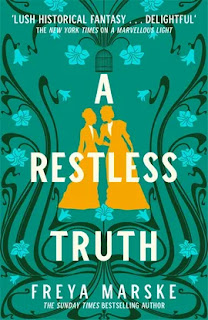

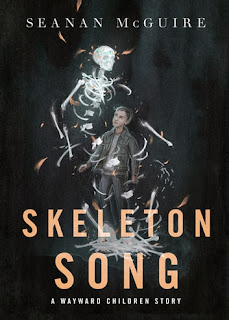
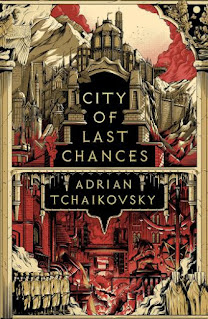




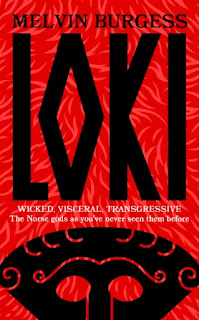


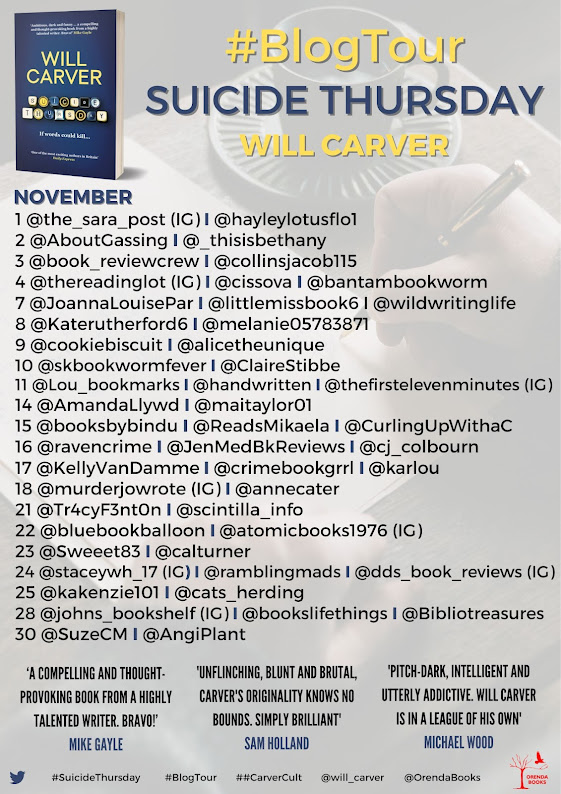
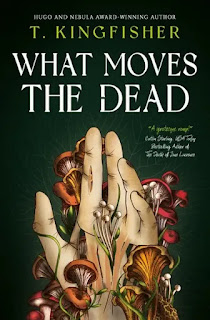



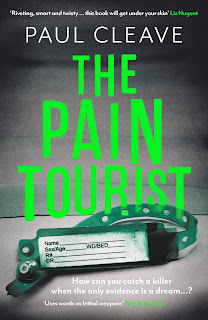
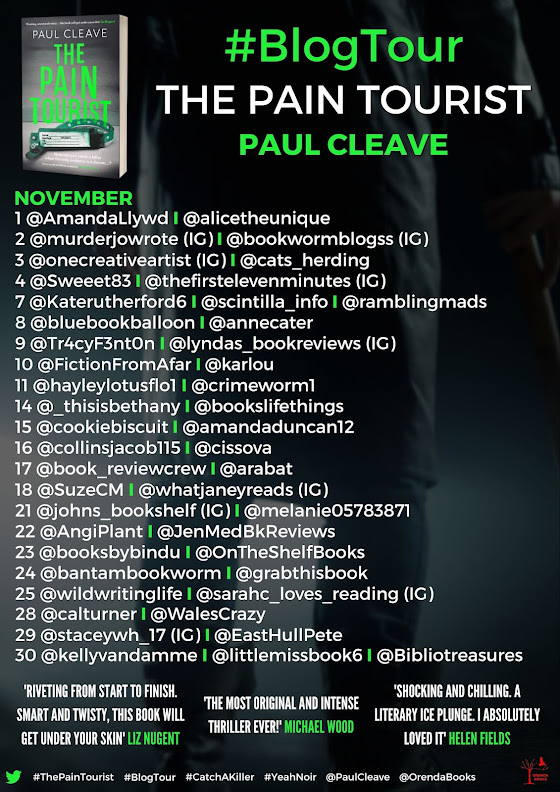
.jpeg)
